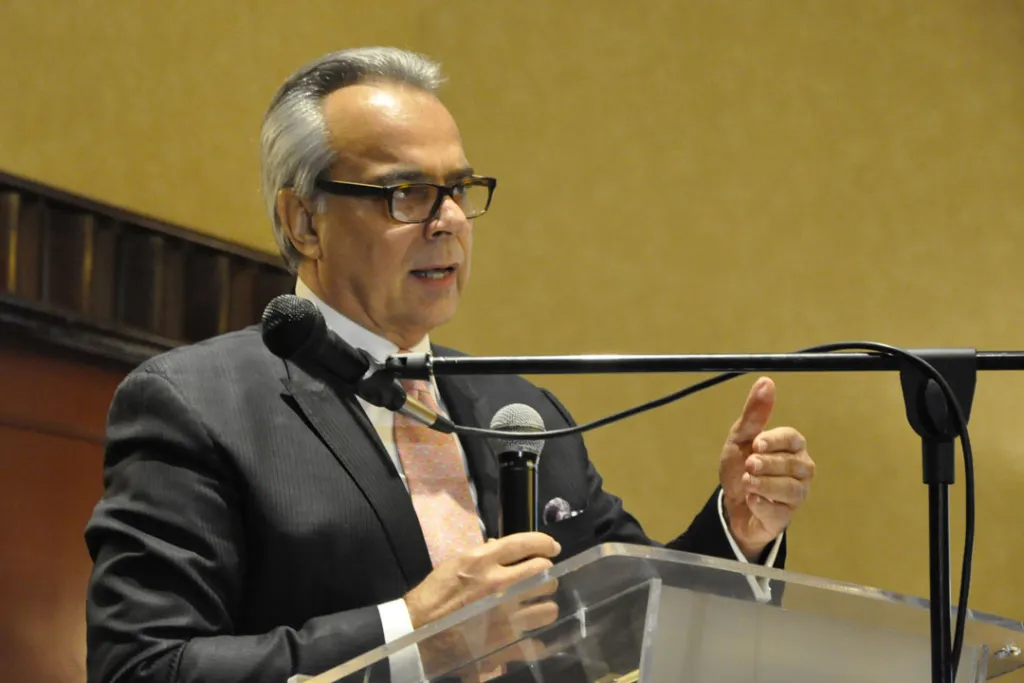International IDEA discusses 'Private financing of politics in Guatemala and its effects on democracy'

The forum "Private financing of politics in Guatemala and its effects on democracy" was held in Guatemala City, organized by the International Commission against Impunity in Guatemala (CICIG). The forum featured a distinguished panel of experts headed by the Commissioner Iván Velásquez, the president of the Supreme Electoral Tribunal (TSE) of Guatemala, María Eugenia Mijangos and the Director for Latin America and the Caribbean of International IDEA, Daniel Zovatto. During the forum, reflections were made on the origin, destination and regulation of political financing in the Central American country.
Este articulo se encuentra disponible en Castellano.
The forum "Private financing of politics in Guatemala and its effects on democracy" organized by the International Commission against Impunity in Guatemala (CICIG), was held in Guatemala City on 31 October 2017, with the participation and assistance of various personalities, high level representatives of the United Nations and of Guatemalan civil society in general.
The panel of speakers was composed of the Chief of CICIG, Commissioner Iván Velásquez and the president of the Supreme Electoral Tribunal (TSE) of Guatemala, María Eugenia Mijangos, and Regional Director of International IDEA Daniel Zovatto.
During his presentation, Commissioner Velásquez emphasized that "Illicit financing is the original sin of Guatemalan democracy, it is the doorway to the vicious circle of corruption, the substitution of the common good for private interests, and the perpetuation of the corrupt political class in the exercise of power."
He highlighted that revealing the different types of illicit financing that were used in the previous elections, will allow the realization of a more equitable campaign. "It is not about judicializing the policy or criminalizing electoral financing, what we intend is to investigate the crimes that were committed in that process."
He also emphasized that one of the best ways to strengthen democracy is to allow citizens to know the origin and destination of the financing of politics. It is an act of integrity and political will of the members of the political parties, and the citizens have a determining role in this process. "As we have been insisting, the fight against corruption demands the active participation of citizens, social organizations and the press. The social audit is essential to denounce acts of corruption and demand an effective response from the electoral authorities and justice before them," he said.
In her speech, the president of the TSE, Mijangos, highlighted that a transparent and reliable electoral system helps in advancing the democratic construction, and for the majority of citizens, elections constitute the most important moment of political participation.
She pointed out that the current system of political parties in Guatemala does not have the necessary strengths to contribute effectively to the democratic development of the country, which is reflected in that, for almost a decade, Guatemala is one of the least democratically developed countries in Latin America. "One of the evidences is the weakness of party structures and the lack of articulation of a substantive political debate oriented towards the structural problems of our country," she added.
"Every four years political campaigns are increasingly costly and diversified, but empty of content," she shared. Owing to the complex relationship between money and democracy, it is necessary to regulate electoral financing, since the interference of private financing almost always determines the options and political candidates. She urged the institutions of the State and the citizens to propose renovating actions that contribute to eradicating this practice that entails that the governments in turn commit acts of corruption to the detriment of the fundamental rights of the population.
In his presentation, Zovatto emphasized that democracy has no price, but it does have an operating cost. "This is to say that money is indispensable, but at the same time problematic´; we need money to organize electoral campaigns, to finance political parties, to pay advisors or surveys."
For this reason, he considered that there was no point in "demonizing money", mainly private capital, but it was fundamental to establish a regulatory framework to guarantee that the money that enters the political system does not produce the negative effects, such as: the lack of fairness in the electoral contest, capture of the State of public policies, penetration of money from drug trafficking and organized crime, among other factors.
In addition, it considers that it is not advisable to completely eliminate public financing and move to exclusively private financing, because it would be encouraging the negative aspects of this type of financing, which would cause a large level of inequality in electoral competition; in addition it would propitiate the penetration of the private money in the life of the political parties and the electoral campaigns.
In the opinion of Zovatto, in a mixed system, a part of private financing must be authorized, provided that there is control over the top of electoral spending, in addition to guaranteeing in an effective way "who are the physical and legal persons who can perform contributions and those that can not, including the type of donations that will be allowed and which will not. "
He affirmed that the "Achilles heel" for most of the political financing systems in Latin America are low levels of transparency and accountability, very weak control bodies, penalties based on fines, administrative measures, suspensions or cancellations of records of political parties.
He pointed out that recent reforms to the Electoral Law and Political Parties generate a "refoundational stage" for the TSE since it will not be subject only to organize elections in each electoral process, but now has a responsibility that constitutes opportunities and challenges for the electoral system of the country.
View the video of Daniel Zovatto's intervention.



